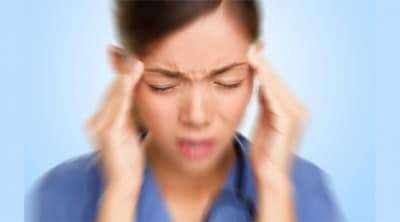 A headache at any time can be a real source of discomfort and stress. But nighttime headaches exacerbate tiredness and stress after a long day—all you want to do is get some sleep, but your head hurts too much to allow a restful night. And when headache arrives in the evening, you feel miserable when you should be relaxing with friends and family.
A headache at any time can be a real source of discomfort and stress. But nighttime headaches exacerbate tiredness and stress after a long day—all you want to do is get some sleep, but your head hurts too much to allow a restful night. And when headache arrives in the evening, you feel miserable when you should be relaxing with friends and family.
If this describes you, then there’s a chance your regular headaches are connected to TMD. If you already have TMD and suffer regular headaches, be assured that you can find relief, and not just in a bottle of aspirin.
How is TMD Connected to Nighttime Headaches?
Some 80% of TMD patients suffer from headaches. Of those, 60 to 70% say that their headaches achieve migraine status in pain and other symptoms. Most of these headaches are caused by muscle pain, spasms, and tension. Most of that muscle tightness is likely either a cause or a symptom of TMD. Here are some common causes of TMD-related muscle tension and spasms:
- Clenching or grinding of teeth
- Jutting or “working” your jaw
- Holding your head in your hand
- Tilting or cocking your head
- Unnatural jaw alignment
These symptoms can tighten the muscles of your face, neck, jaw, and head, all of which can lead to tension headaches. These headaches occur on a regular basis because of your untreated TMD. Because many don’t think of TMD when they get a headache or a series of headaches, TMD-related headaches often go undiagnosed until the condition becomes severe enough for the sufferer to seek help—usually at the migraine stage of things.
How Can You Relieve TMD-Associated Headaches?
If you know or suspect that you may have TMD, the best thing to do is to seek the help of a specialist.
There are many ways to relieve the pain of TMD-related headaches, and some of the most powerful treatments don’t involve medication. They include:
- A mouth guard to properly align the jaw and stop you from clenching or grinding your teeth
- Behavior modification—sitting up straight, not leaning your head on your hand, etc.
- Exercise instead of working your jaw all day
- Relaxation and meditation
- Massage
- Prescription muscle relaxers
- Hot compresses/towels on the neck, shoulder, and facial areas
To learn more how St. Augustine TMJ dentist Dr. Stephanie Kinsey can help with your nighttime headaches, call our our office at (904) 826-4343 today.


